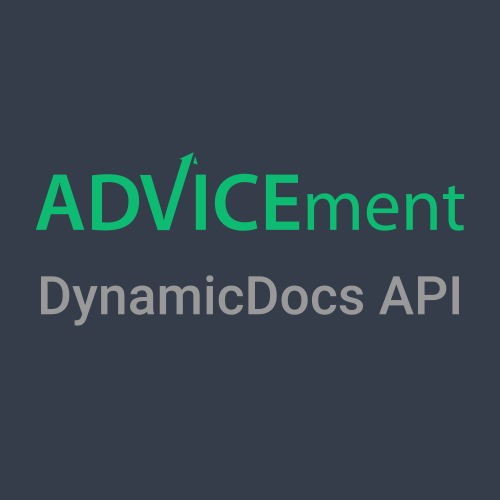The PTV Timetable API provides direct access to Public Transport Victoria’s public transport timetable data. The API returns scheduled timetable, route and stop data for all metropolitan and regional train, tram and bus services in Victoria, including Night Network(Night Train and Night Tram data are included in metropolitan train and tram services data, respectively, whereas Night Bus is a separate route type). The API also returns real-time data for metropolitan train, tram and bus services (where this data is made available to PTV), as well as disruption information, stop facility information, and access to myki ticket outlet data. This Swagger is for Version 3 of the PTV Timetable API. By using this documentation you agree to comply with the licence and terms of service. Train timetable data is updated daily, while the remaining data is updated weekly, taking into account any planned timetable changes (for example, due to holidays or planned disruptions). The PTV timetable API is the same API used by PTV for its apps. To access the most up to date data PTV has (including real-time data) you must use the API dynamically. You can access the PTV Timetable API through a HTTP or HTTPS interface, as follows: base URL / version number / API name / query string The base URL is either: * http://timetableapi.ptv.vic.gov.au or * https://timetableapi.ptv.vic.gov.au The Swagger JSON file is available at http://timetableapi.ptv.vic.gov.au/swagger/docs/v3 Frequently asked questions are available on the PTV website at http://ptv.vic.gov.au/apifaq Links to the following information are also provided on the PTV website at http://ptv.vic.gov.au/ptv-timetable-api/ * How to register for an API key and calculate a signature * PTV Timetable API V2 to V3 Migration Guide * Documentation for Version 2 of the PTV Timetable API * PTV Timetable API Data Quality Statement All information about how to use the API is in this documentation. PTV cannot provide technical support for the API. Credits: This page has been based on Steve Bennett's http://opentransportdata.org/, used with permission.
ADVICEment's [DynamicDocs API automates your document generation](https://advicement.io/dynamic-documents-api) and creates dynamic, optimized, interactive PDFs. Write your templates in LaTeX and call the API with JSON data to get your PDFs in seconds. The template files are stored in your dashboard and can be edited, tested and published online. Document templates can contain dynamic text using logic statements, include tables stretching multiple pages and show great-looking charts based on the underlying data. LaTeX creates crisp, high-quality documents where every detail is well-positioned and styled. Integrate with ADVICEment DynamicDocs API in minutes and start creating beautiful [dynamic PDF documents](https://advicement.io/dynamic-documents-api) for your needs. For more information, visit [DynamicDocs API Home page](https://advicement.io/dynamic-documents-api).
The largest open video games database. ### Why build on RAWG - More than 350,000 games for 50 platforms including mobiles. - Rich metadata: tags, genres, developers, publishers, individual creators, official websites, release dates, Metacritic ratings. - Where to buy: links to digital distribution services - Similar games based on visual similarity. - Player activity data: Steam average playtime and RAWG player counts and ratings. - Actively developing and constantly getting better by user contribution and our algorithms. ### Terms of Use - Free for personal use as long as you attribute RAWG as the source of the data and/or images and add an active hyperlink from every page where the data of RAWG is used. - Free for commercial use for startups and hobby projects with not more than 100,000 monthly active users or 500,000 page views per month. If your project is larger than that, email us at [api@rawg.io](mailto:api@rawg.io) for commercial terms. - No cloning. It would not be cool if you used our API to launch a clone of RAWG. We know it is not always easy to say what is a duplicate and what isn't. Drop us a line at [api@rawg.io](mailto:api@rawg.io) if you are in doubt, and we will talk it through. - You must include an API key with every request. The key can be obtained at https://rawg.io/apidocs. If you don’t provide it, we may ban your requests. __[Read more](https://rawg.io/apidocs)__.
# Introduction The Rebilly API is built on HTTP. Our API is RESTful. It has predictable resource URLs. It returns HTTP response codes to indicate errors. It also accepts and returns JSON in the HTTP body. You can use your favorite HTTP/REST library for your programming language to use Rebilly's API, or you can use one of our SDKs (currently available in [PHP](https://github.com/Rebilly/rebilly-php) and [Javascript](https://github.com/Rebilly/rebilly-js-sdk)). We have other APIs that are also available. Every action from our [app](https://app.rebilly.com) is supported by an API which is documented and available for use so that you may automate any workflows necessary. This document contains the most commonly integrated resources. # Authentication When you sign up for an account, you are given your first secret API key. You can generate additional API keys, and delete API keys (as you may need to rotate your keys in the future). You authenticate to the Rebilly API by providing your secret key in the request header. Rebilly offers three forms of authentication: secret key, publishable key, JSON Web Tokens, and public signature key. - [Secret API key](#section/Authentication/SecretApiKey): used for requests made from the server side. Never share these keys. Keep them guarded and secure. - [Publishable API key](#section/Authentication/PublishableApiKey): used for requests from the client side. For now can only be used to create a [Payment Token](#operation/PostToken) and a [File token](#operation/PostFile). - [JWT](#section/Authentication/JWT): short lifetime tokens that can be assigned a specific expiration time. Never share your secret keys. Keep them guarded and secure. <!-- ReDoc-Inject: <security-definitions> --> # Errors Rebilly follow's the error response format proposed in [RFC 7807](https://tools.ietf.org/html/rfc7807) also known as Problem Details for HTTP APIs. As with our normal API responses, your client must be prepared to gracefully handle additional members of the response. ## Forbidden <RedocResponse pointer={"#/components/responses/Forbidden"} /> ## Conflict <RedocResponse pointer={"#/components/responses/Conflict"} /> ## NotFound <RedocResponse pointer={"#/components/responses/NotFound"} /> ## Unauthorized <RedocResponse pointer={"#/components/responses/Unauthorized"} /> ## ValidationError <RedocResponse pointer={"#/components/responses/ValidationError"} /> # SDKs Rebilly offers a Javascript SDK and a PHP SDK to help interact with the API. However, no SDK is required to use the API. Rebilly also offers [FramePay](https://docs.rebilly.com/docs/developer-docs/framepay/), a client-side iFrame-based solution to help create payment tokens while minimizing PCI DSS compliance burdens and maximizing the customizability. [FramePay](https://docs.rebilly.com/docs/developer-docs/framepay/) is interacting with the [payment tokens creation operation](#operation/PostToken). ## Javascript SDK Installation and usage instructions can be found [here](https://docs.rebilly.com/docs/developer-docs/sdks). SDK code examples are included in these docs. ## PHP SDK For all PHP SDK examples provided in these docs you will need to configure the `$client`. You may do it like this: ```php $client = new Rebilly\Client([ 'apiKey' => 'YourApiKeyHere', 'baseUrl' => 'https://api.rebilly.com', ]); ``` # Using filter with collections Rebilly provides collections filtering. You can use `?filter` param on collections to define which records should be shown in the response. Here is filter format description: - Fields and values in filter are separated with `:`: `?filter=firstName:John`. - Sub-fields are separated with `.`: `?filter=billingAddress.country:US`. - Multiple filters are separated with `;`: `?filter=firstName:John;lastName:Doe`. They will be joined with `AND` logic. In this example: `firstName:John` AND `lastName:Doe`. - You can use multiple values using `,` as values separator: `?filter=firstName:John,Bob`. Multiple values specified for a field will be joined with `OR` logic. In this example: `firstName:John` OR `firstName:Bob`. - To negate the filter use `!`: `?filter=firstName:!John`. Note that you can negate multiple values like this: `?filter=firstName:!John,!Bob`. This filter rule will exclude all Johns and Bobs from the response. - You can use range filters like this: `?filter=amount:1..10`. - You can use gte (greater than or equals) filter like this: `?filter=amount:1..`, or lte (less than or equals) than filter like this: `?filter=amount:..10`. This also works for datetime-based fields. - You can create some [predefined values lists](https://user-api-docs.rebilly.com/#tag/Lists) and use them in filter: `?filter=firstName:@yourListName`. You can also exclude list values: `?filter=firstName:!@yourListName`. - Datetime-based fields accept values formatted using RFC 3339 like this: `?filter=createdTime:2021-02-14T13:30:00Z`. # Expand to include embedded objects Rebilly provides the ability to pre-load additional objects with a request. You can use `?expand` param on most requests to expand and include embedded objects within the `_embedded` property of the response. The `_embedded` property contains an array of objects keyed by the expand parameter value(s). You may expand multiple objects by passing them as comma-separated to the expand value like so: ``` ?expand=recentInvoice,customer ``` And in the response, you would see: ``` "_embedded": [ "recentInvoice": {...}, "customer": {...} ] ``` Expand may be utilitized not only on `GET` requests but also on `PATCH`, `POST`, `PUT` requests too. # Getting started guide Rebilly's API has over 300 operations. That's more than you'll need to implement your use cases. If you have a use case you would like to implement, please consult us for feedback on the best API operations for the task. Our getting started guide will demonstrate a basic order form use case. It will allow us to highlight core resources in Rebilly that will be helpful for many other use cases too. Within 25 minutes, you'll have sent API requests (via our console) to create a subscription order.
Download OpenAPI specification: [openapi.yml](openapi.yml) # Introduction Rudder exposes a REST API, enabling the user to interact with Rudder without using the webapp, for example in scripts or cronjobs. ## Versioning Each time the API is extended with new features (new functions, new parameters, new responses, ...), it will be assigned a new version number. This will allow you to keep your existing scripts (based on previous behavior). Versions will always be integers (no 2.1 or 3.3, just 2, 3, 4, ...) or `latest`. You can change the version of the API used by setting it either within the url or in a header: * the URL: each URL is prefixed by its version id, like `/api/version/function`. ```bash # Version 10 curl -X GET -H "X-API-Token: yourToken" https://rudder.example.com/rudder/api/10/rules # Latest curl -X GET -H "X-API-Token: yourToken" https://rudder.example.com/rudder/api/latest/rules # Wrong (not an integer) => 404 not found curl -X GET -H "X-API-Token: yourToken" https://rudder.example.com/rudder/api/3.14/rules ``` * the HTTP headers. You can add the **X-API-Version** header to your request. The value needs to be an integer or `latest`. ```bash # Version 10 curl -X GET -H "X-API-Token: yourToken" -H "X-API-Version: 10" https://rudder.example.com/rudder/api/rules # Wrong => Error response indicating which versions are available curl -X GET -H "X-API-Token: yourToken" -H "X-API-Version: 3.14" https://rudder.example.com/rudder/api/rules ``` In the future, we may declare some versions as deprecated, in order to remove them in a later version of Rudder, but we will never remove any versions without warning, or without a safe period of time to allow migration from previous versions.
Existing versions
| Version | Rudder versions it appeared in | Description |
|---|---|---|
| 1 | Never released (for internal use only) | Experimental version |
| 2 to 10 (deprecated) | 4.3 and before | These versions provided the core set of API features for rules, directives, nodes global parameters, change requests and compliance, rudder settings and system API |
| 11 | 5.0 | New system API (replacing old localhost v1 api): status, maintenance operations and server behavior |
| 12 | 6.0 and 6.1 | Node key management |
| 13 | 6.2 |
|
| 14 | 7.0 |
|
| 15 | 7.1 |
|
| 16 | 7.2 |
|
| Field | Type | Description |
|---|---|---|
| prettify | boolean optional |
Determine if the answer should be prettified (human friendly) or not. We recommend using this for debugging purposes, but not for general script usage as this does add some unnecessary load on the server side.
Default value: |
| Field | Type | Description |
|---|---|---|
| reason | string optional or required |
Set a message to explain the change. If you set the reason messages to be mandatory in the web interface, failing to supply this value will lead to an error.
Default value: |
| changeRequestName | string optional |
Set the change request name, is used only if workflows are enabled. The default value depends on the function called
Default value: |
| changeRequestDescription | string optional |
Set the change request description, is used only if workflows are enabled.
Default value: |
Rumble Network Discovery is now runZero. Read the announcement.
This API is frozen and no longer being updated as of version 2.15.0.
See our latest API documentation at swaggerhub.com/apis-docs/runZero/runZero.









